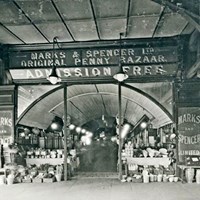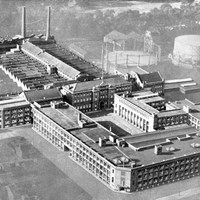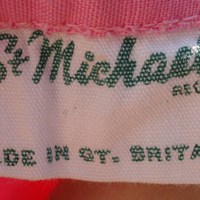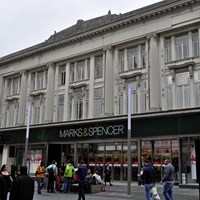The Marks & Spencer Effect 1900 - Present
Michael Marks arrived in Britain during the 1880s to escape the persecution of Jews in Russian Poland. In 1884 he set up a stall in Leeds' Kirkgate open market where he sold a range of household goods with a fixed price tag of one penny.
See objects from this period in our virtual museum.
Michael Marks arrived in Britain during the 1880s to escape the persecution of Jews in Russian Poland. In 1884 he set up a stall in Leeds' Kirkgate open market where he sold a range of household goods with a fixed price tag of one penny.
Find out moreThe late nineteenth and early twentieth century saw attempts by London warehouses to monopolise the supply of knitted goods to retailers.
Find out moreFamily control of the Marks & Spencer boardroom ended in 1984 when Marcus Sieff retired as chairman. The new chairman, Derek Raynor, broke with the past and brought new ideas to Marks & Spencer.
Find out moreIn the 1980s high street competition intensified for Marks & Spencer. Companies like Next took customers away and forced Marks & Spencer to look at how it could change to compete in this new environment.
Find out more


